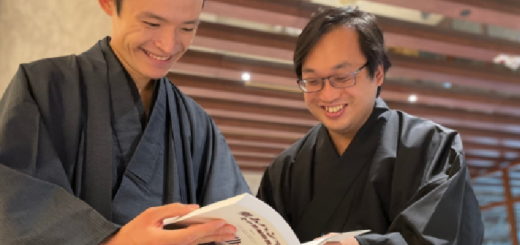Dialogues of the Prophet Muhammad with non-Muslims
Written by Dr. Ragheb Elsergany
At the present time, a nation may recognize the identity of another one, but, it does not respect and revere them. To exemplify, Europeans, at successive periods of their history, used to put a sign “Jews and Dogs are not allowed” on the doors of restaurants and stores. Though Europeans recognize Jews as a religious identified class and a religion mentioned in Evangel, they, in no case, respect them that they make equal Jews and dogs. Moreover, Europeans may pamper and treat gently dogs more than Jews!!
The stance of Europeans towards Jews was the same the White Americans adopted with the Black Americans who are African descendants. Also, White Americans used to put a sign “Black Americans and Dogs are not allowed” on the doors of restaurants and stores!!
It is the same oppressive attitude which pays no respect or reverence to the human soul, for Islam, it is completely different.
In this course of this article and the others, I will tackle the issue of how Muslims revered non-Muslims and not only showing recognition to them.
This will be conducted in many aspects as follows;
– the etiquettes of dialogue
– praising non-Muslims
– great regard for messengers and leaders (the prophetic protocol)
The Etiquettes of Dialogue
Prophet Muhammad (PBUH) figured out for Muslims the ideal manner of dealing with non-Muslims. In other words, it is not sufficient to Muslims to recognize the other, however; they have also to respect and conduct dialogues with them. This approach of the prophet Muhammad was not a personal tendency, but it was a revelation confirmed by the Quranic verses on dealing with non-Muslims. Allah, Almighty, says :( Say, “Who provides for you from the heavens and the earth?” Say, “Allah. And indeed, we or you are either upon guidance or in clear error…….. And He is the Knowing Judge), Sabaa, 24-25-26.
Prophet Muhammad (PBUH) is quite sure he is upon guidance, yet; Allah, Almighty, ordered him to lead the course of dialogue with polytheists in the direction “we or you are either upon guidance or in clear error”. This is the common ground that is one party is certainly right and the other shall definitely be wrong. Thus, let’s argue and discuss issues to get the truth.
This is the ideal manner when conducting dialogue. It is the ultimate of politeness and morals. Moreover, Allah, Almighty, guides his Messenger Muhammad to address them politely (Say, “You will not be asked about what we committed, and we will not be asked about what you do.”).
You may contemplate that Allah ordered his Messenger Muhammad to address them attributing wrongdoing to him that is declared on expressing by the verb “commit”, while using the verb “do” to address them with which implies possibility of righteousness or deviation. After that, Allah guides His Messenger Muhammad to let all matters be to Him, Allah, (SWT) who will resurrect all humans on the Last Day and judge among them where every one will know, by then, if he was right or wrong.
Indeed, it is the most possible noble approach on conducting dialogues. It implies no aspect of narrow-mindedness or rigorism. On contrary, it bears politeness and appreciation to the other party.
This approach is stated in the Glorious Quran where Allah, Almighty, identified the manner of approaching the People of the Book
(And do not argue with the People of the Scripture except in a way that is best, except for those who commit injustice among them, and say, “We believe in that which has been revealed to us and revealed to you. And our God and your God is one; and we are Muslims [in submission] to Him.”), Al-`Ankabut, 46.
How noble is the approach! Allah does not only order Muslims to dialogue with the People of the Book politely only, however; He (SWT) always instructs us to adopt the ideal approach.
Has it never found in the man-made laws or philosophers statements approach even gets near to that of Allah?!
Moreover, you may contemplate on attracting both minds and hearts of the other party in the glorious Quranic verse: (and say, “We believe in that which has been revealed to us and revealed to you. And our God and your God is one; and we are Muslims [in submission] to Him.”). This approach arouses the spirit of cooperation and harmony not dissension and hate in the hearts of the People of the Book. Our Lord is one and we both were endowed by revealed books from Allah, why then dissension and contention take place?!
In this way, you may review the Quranic verse to enjoy the much moral treasures.
Allah, Almighty, says: (Say, “O People of the Scripture, come to a word that is equitable between us and you – that we will not worship except Allah and not associate anything with Him and not take one another as lords instead of Allah.” But if they turn away, then say, “Bear witness that we are Muslims [submitting to Him].”), Al-`Emran, 64 and (Many of the People of the Scripture wish they could turn you back to disbelief after you have believed, out of envy from themselves [even] after the truth has become clear to them. So pardon and overlook until Allah delivers His command. Indeed, Allah is over all things competent), Al-Baqarah, 109. Such verses are too many that no room to count them, however; we are just concerned here to apply them to the life of the prophet Muhammad to highlight the manner of his dealing with non-Muslims and how he paid reverence to them.
Examples of the prophet’s dialogue with non-Muslims
Prophet Muhammad used to listen carefully to non-Muslims, even if their proposals and suggestions went beyond limits of mind and the ordinances of Islam. He used to let them express their views and opinions, and then he starts arguing with them and conveying the message of Islam.
Prophet Muhammad (PBUH) and `Utbah ibn Rabi`ah
You may contemplate on this example and the manner the prophet Muhammad approached `Utbah[1], a prominent head in Quraish.
`Utbah approached the prophet Muhammad bargaining him to renegade Islam. The wording was (O, dear! You know your stance among us, power, clan, position and kinship. You came to your people with a great matter by which you disunited them, stultified their manner, censured their deities and religion and held disbelievers their ancestors. Thus, I will propose to you many choices that you may pick out one of them. If you seek money, we will collect a lot of it until you are the richest among us. If you seek notability, we will make you our master to the extent that the final decision will be to you only. If you seek rule, we will make you our ruler. If you can not get over the obsessions you see in your dreams thinking it is revelation, we will medicate you at our expense until you get recovered that it frequently happens that obsessions overcome one of us, but he may finally be recovered.
At that moment, the prophet Muhammad said: (o Abu-Al-Waled! have you finished your words?) Abu-Alwalid replied: yes, I did. The prophet said: Now, it is you turn to listen to me. Abu-Alwalid said: I will do. The prophet Muhammad recited the Quranic verses: (îa, Meem. [This is] a revelation from the Entirely Merciful, the Especially Merciful – so work; indeed, we are working.”), Fussilat, 1-5.
`Utbah listened to the verses putting his hands at the back leaning on them. When the prophet reached the prostration, the prophet prostrated. Then, the prophet addressed `Utbah: O Abu-Al-Waled! You have listened to what I recited and you may react as you like.
`Utbah returned to his people who addressed each other: we swear by Allah that the face of Abul-Waled is not the same when he went to Muhammad. When `Utbah arrived to them and sat, they addressed him: what is happened? `Utbah replied: (By Allah! I listened to words like never before. They were not lines of poetry, witching or soothsaying. O People of Quraish! Obey me. You should leave Muhammad proceed in. By Allah! The words I heard from him will have great state. If Arabs cause damage to him, you will be saved. But, if he won victory over Arabs, you will be beneficial of his rule and dignity and you will be satisfied with him). They replied: By Allah! Muhammad charmed you with his words! He replied: by Allah! This is my view over him and you are free to do what you like[2].
This dialogue is so important. Though, `Utbah started by some of accusations directed to the prophet Muhammad, the prophet kept quiet and calm and kept listening politely to `Utbah who offered to the prophet to abandon his religion in return for worldly transient proposals. Moreover, the prophet addressed him “Abu-Alwaled” that is he used his surname the matter indicates leniency with `Utbah. Though the proposals and offers of `Utbah were absurd, the prophet kept listening to the end and said to him: O Abul-Waled! Have you finished? Who in turn replied to the prophet: Yes Then, the prophet said: Now, it is my turn to listen to me.
The prophet gave a complete chance to `Utbah to talk and express his view of point. Upon `Utbah’s conclusion; the prophet (PBUH) started talking.
Such approach of the Prophet Muhammad with `Utbah gives Muslims a wonderful example on how they should deal with non-Muslims who are adopting other tenets.
[1]- He was a prudent among men of Quraish. He was a factor on terminating the war of Al-Fujar, however; he followed his own whims and had not embraced Islam. He hurt the prophet Muhammad and his companions a lot. once, he hit Abubakr severely to the extent that Abu-Bakr tribe men stated: If Abu-Bakr died out of that, we would kill `Utbah. He was killed as disbeliever along with his son Al-Walid in the battle of Badr.
[2]- Review book “Musnad” by Abu-Ya`li (181), ” Sirah ” by ibn Hesham (1/293-4), “Ad-Dalael” book by Al-Bayhiqi (1/1230-1), “Ad-Dalael” (182) by ibn Na`im, “Al-Musanaf” (14/295-6) by ibn Abi-Shaibah, “Al-Muntakhab” by `Abd ibn hamid (1123) and “Al-Mustadrak” by Al-Hakim (2/253). Al-Hakim and Adhahabi referenced it as authentic. Review “Al-Matalib Al-`Alyah” by ibn Hajar (4285). Al-Haithami in his book “Al-Majma`” (6/19-20) stated: Abu-Ya`li related it and said that Al-Ajlah ibn Al-Kanadi is in its chain of narrators who is deemed trustworthy by ibn Ma`in and others while An-Nisai and others deemed him weak. God willing, he is good narrator. The remaining narrators of the Hadith are trustworthy.
Number of View :2375















